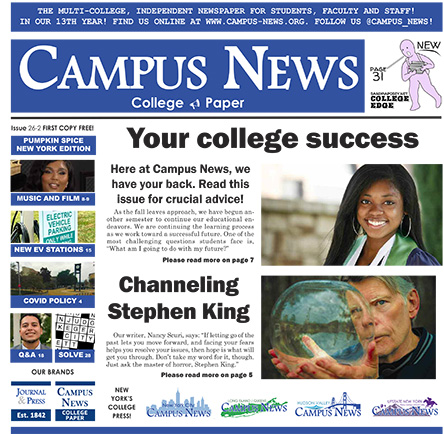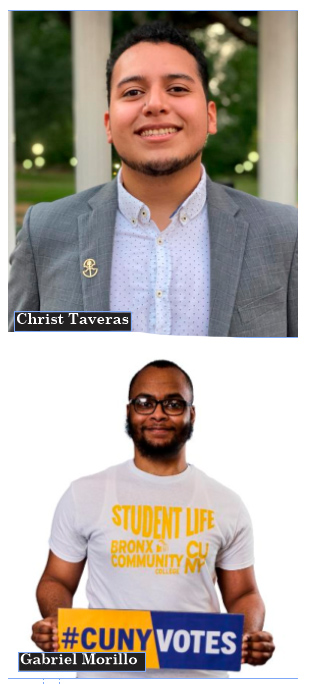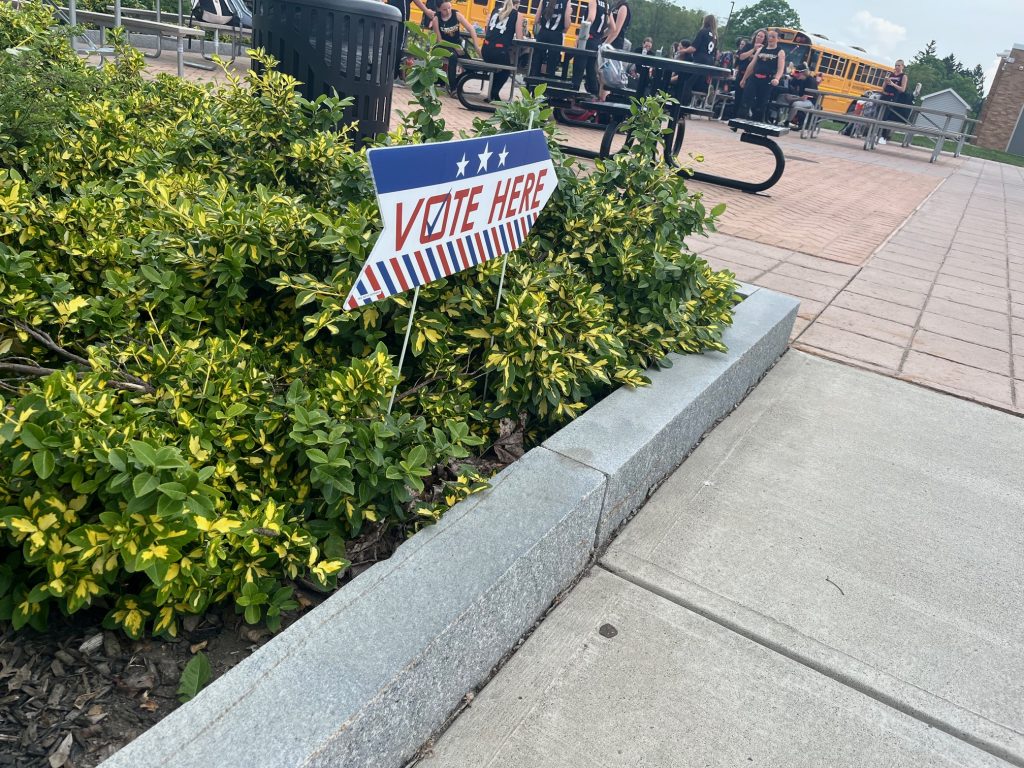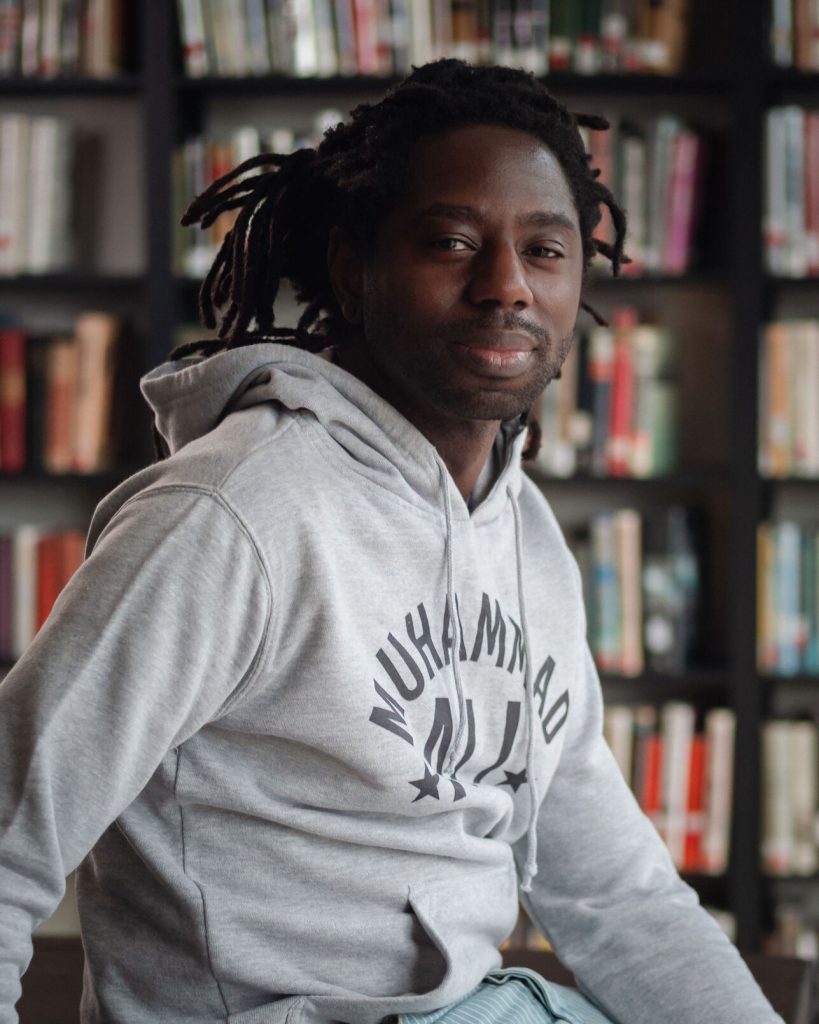By Darren Johnson
Campus News
In our last issue, we published that the Kaplan Educational Foundation (KEF) recently celebrated the latest college acceptances from their 15th cohort of scholars in the Kaplan Leadership Program.
Established in 2006, the Kaplan Leadership Program helps high-potential, low-income and underrepresented community college students complete their associate's degree, successfully transfer and go on to earn a four-year bachelor's degree at the nation's most highly-selective schools. Over 100 students from the NY/NJ Metro area have been helped so far.
The program focuses on a holistic approach – providing extensive tutoring, academic advisement services, leadership and career training, stipends for living expenses, and other resources and support to help them expand their personal goals, and eventually attain leadership roles in their professions and communities.
Please find our last issue on cccnews.info to view the full list of scholars and the schools at which they were accepted. To learn more about the KEF, visit: www.kaplanedfoundation.org.
For this piece, I interviewed 2019 KEF class member Christ Taveras, who transferred from Bronx Community College and got a full-ride scholarship to the University of North Carolina-Chapel Hill, where he graduated from this past May with a BA in Economics. He now is in the Bank of America Financial Management Analyst Program.
I also spoke with newly minted KEF scholar Gabriel Morillo, also from Bronx Community College who now is majoring in Political Science at Haverford College in Pennsylvania. Like Taveras, Kaplan's foundation is helping him with all costs. Also, along the way, the program mentors their students to prosper at their new college.
Here is the Q&A from late August, conducted via Zoom:
Darren Johnson (DJ): Gabriel, I see you are at Haveford College already. Classes haven’t started yet?
Gabriel Morillo (GM): I was selected to be enrolled into an achievement program for low-income and first-generation students.
I came here early because I found it very important to become acclimated and acquainted with the services that this college has for all of their students.

DJ: How did you find this school? They probably don’t market much in the Bronx.
GM: Without the Kaplan Educational Foundation, I wouldn't have known Haverford College even existed. They gave me so many options. I've been very grateful to have been coached by my mentor through them, Mariana, my transfer adviser, my writing coach, to get to this point. ...
It's a beautiful environment here.
DJ: Were there any obstacles?
GM: As a first-generation student, it was very hard for me to get out of New York City. I have a younger brother with autism, but both my mother and father work tirelessly. Without having a babysitter, my leaving would be very rough. But the Kaplan Educational Foundation let us know how important our goals are, and my parents agreed. They pushed me to apply to colleges outside the region and improve and to know this is my opportunity to grow, and this is an opportunity to help my brother in the future; and also help marginalized communities, including the disabled community.
DJ: What advice would you have for students who may want to transfer to a presigious school outside the New York Metro area?
GM: Surround yourself with a family – of faculty, of staff members, or student peers, administrators – who will support you and guide you; and find people you could support and guide as well.
I truly believe that it's important for you to be empowered, to help those in marginalized programs, to apply to several selective programs, like the Kaplan Educational Foundation, and to try your best, to never shy away from opportunities, to never shy away from resource programs and to never shy away from putting your mental health first. And realize, the sky's the limit.
DJ: Christ, tell me about your adjustment. Most community college students can’t think beyond attending four-year colleges close by. But you headed all the way to UNC-Chapel Hill.
Christ Taveras (CT): The adjustment was huge. I am a first generation college student, the first in my family to even go to community college and figure that out.
I was like the students you mentioned. I thought I was just going to go to City College or Manhattan College or somewhere close by, and it really was Kaplan that opened my mind to that. They were the ones who asked me. "What would I do if I didn't have financial barriers?" And I had never thought about that before. And then I thought what it might be like attending a college out of state.
As I got closer to transferring, it was actually kind of scary because I had a lot of these feelings that I was abandoning my family, like they needed me, because I have a brother and sister, and I almost didn't do it. I almost told them, "You know what? This is too much. I need to be in the area.
But it was Kaplan who told me, "No, you have goals, and that's valid, and that's something that you should be willing to pursue, and we'll help you." They had so many arguments for what I was about to say, so one of the things that helped me most was I thought I was so far away, but they told me that going home is like an hour and a half by plane. In an hour and a half, if I wanted to be home, I could be home. And I'd never thought about it like that."
DJ: How did you handle attending a university differently than you had community college?
CT: Going to professors' office hours was paramount. It wasn't something I was used to doing. In community college I was able to focus on just me and do things on my own, but at UNC I couldn't do that.
Kaplan really pushed me. They kept tabs on me. It wasn't like once I left they were no longer there for me. They did monthly check-ins to see where I was.
DJ: How is life different for you now?
CT: Now I'm at a point where taking a plane ride anywhere in the world is no longer scary. I pay my own rent. I'm completely prepared as an adult in a way that I'd never really even thought about when I was living with my family.
I always thought my mother would live with me, and I could be that support system. But I'm living independently now. I have my own apartment. I'm working here. I'm making my money. I'm focusing on my career. But I've learned that that doesn't necessarily correlate with me not being there for my family as well. I talk to them every day. I make sure I'm still connected with them. Everything I'm learning – about finance, about building credit – I'm giving to them. My mom, I helped build her credit up. ... It's a journey where I'm parallel with my family; everything I'm learning goes right back to them. That way they can go use that.
DJ: How did the KEF help open your mind to larger possibilities?
CT: We get to visit schools. That is important, to be there and to visualize what it's like to be on campus.
I remember visiting UNC and it felt nothing like New York.
I fell in love with the state on the Uber ride to the school. It was amazing, and green. It was summer. ...
I got to experience school spirit – that was something I'd never thought about before. I got to be a college student, and to enjoy it. Before that, I'd thought it was all about getting that piece of paper, a degree, and that's it.
I was able to hit the ground running. I was able to network and everyone was very open to being with me.
I got to meet professionals, including Latinos, and ask them how they got to where they were and ask how I could get there. Kaplan helped me to learn how to advocate for myself.
DJ: What advice would you have for students making that big leap from a community college to a big university out-of-state?
CT: Self-advocacy, and making sure you can find people you can lean on, and learning to be coachable – how to take developmental feedback and implement that. You will grow in so many ways, and that will open so many doors for you. And, after that, please leave those doors open so that other people behind you can walk through those doors as well.








Facebook Comments